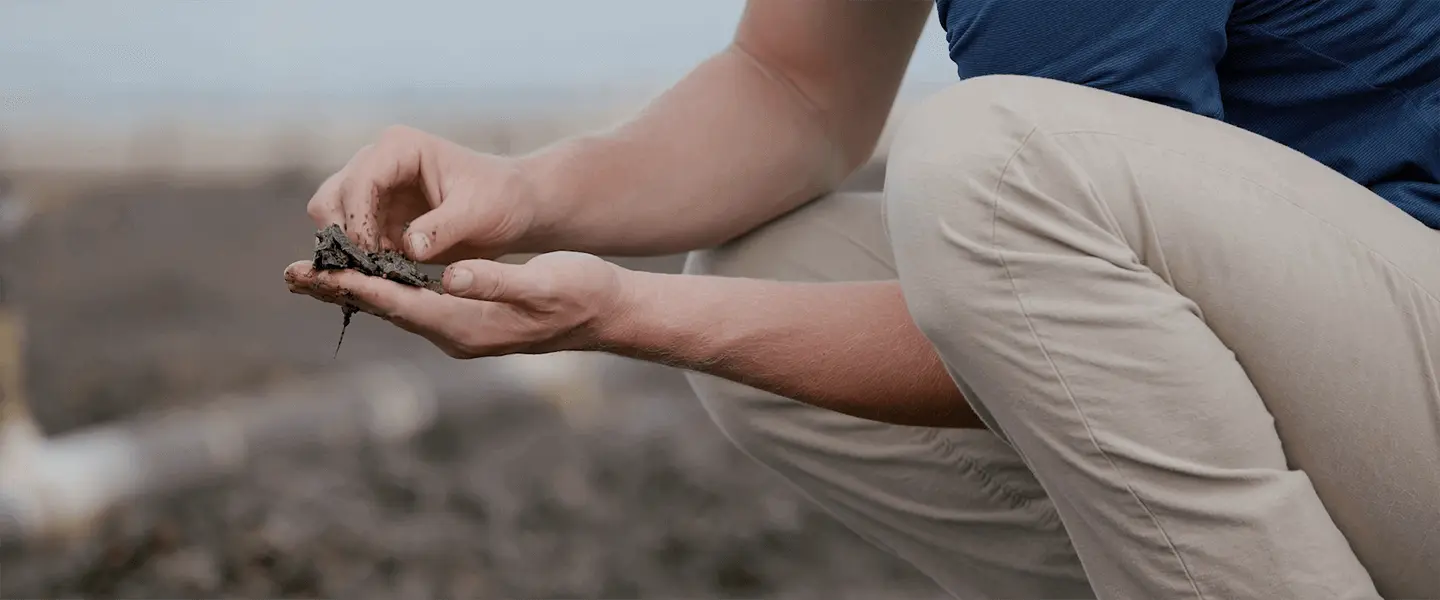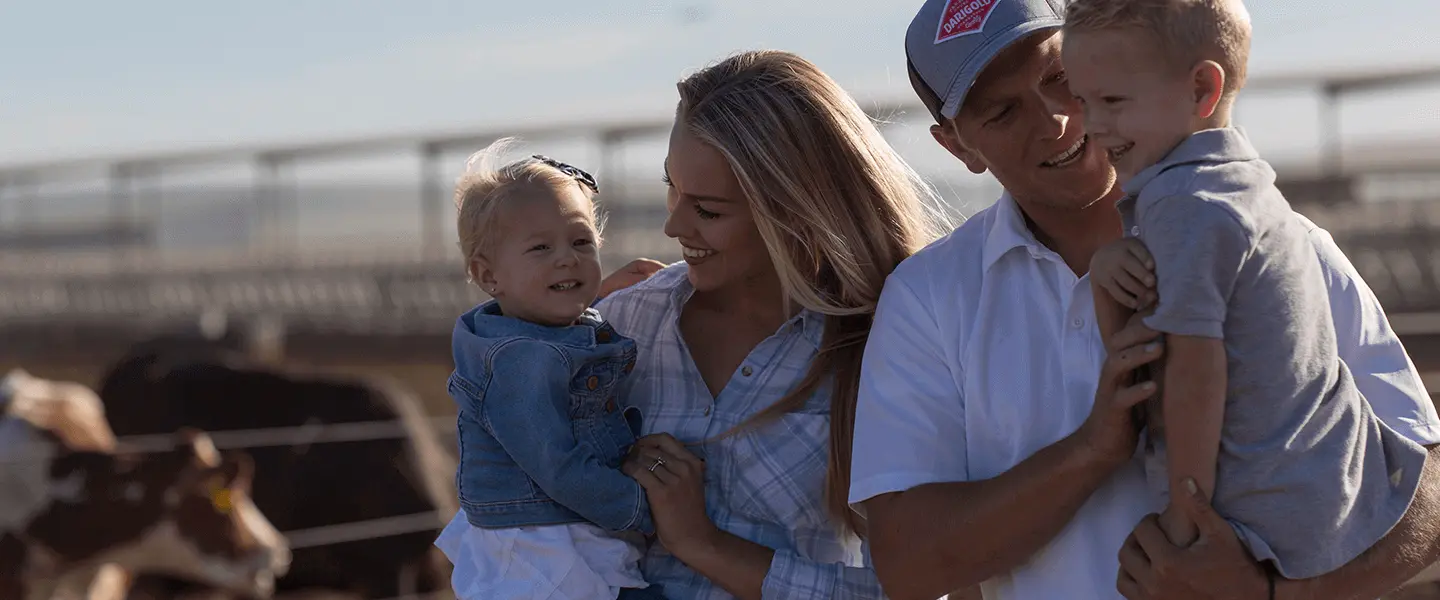How Cows (and Worms) Can Make Dairy a More Sustainable Solution
Local fishermen sometimes swing by Austin Allred’s dairy farm to grab a few worms.
“Yeah, a lot of my worms have ended up in the lakes around here,” Allred says.
But Allred isn’t running a side business of selling bait. Instead, the millions of worms at his Washington dairy are there for another purpose, which is to help grow Allred’s commitment to producing milk in the most sustainable manner he can.
Allred, 31, is on a mission to educate as many people as possible about the dairy industry’s sustainability efforts, which include the 2050 environmental stewardship goals. He aims to reverse the perception that cows are a major contributor of greenhouse gas emissions, instead speaking to how they can be a solution. He aims to show that his farm, like many others, is providing solutions to today’s environmental challenges.
His worm story has created intrigue and has helped open his dairy’s doors to more visitors, ranging from elementary school kids to politicians to “friends of friends of friends.”
“It’s been a really good tool to educate consumers on a lot of what we’re doing,” Allred said. “They’ve been very impressed with the ability of our biofilter system to clean water and also with the vastness of the farm and everything we have going on. We’re probably more extensive than most city municipalities.
“It’s an investment piece for people to understand what we’re doing,” he said.
From worms to clean water
About five years ago, Allred began exploring the idea of installing a water filtration process with worms – and their unique digestive system – at the heart of the system. The worms reside in 5 acres of bedding at the dairy. Water that contains cow manure – the result of cleaning his barns – is piped through the beds that include wood chips and rocks. That’s where the worms get to work, devouring the chips and manure.
Hundreds of thousands of gallons of clean water annually run through the bottom of trays that Allred collects and uses to irrigate 3,500 acres of crops that are fed to his cows. The result – the largest dairy wastewater treatment facility of its kind in the U.S., removing about 90% of the nitrogen, 70% of the phosphorus and about half of the potassium.
But there is another important benefit produced from the process: castings, or worm manure. The castings contain premium plant nutrition and beneficial bacteria that has become a sought-after organic soil supplement by landscapers and growers.
“Like a cow, a worm has a digestive system that is so incredibly impressive in many ways,” Allred said. “Worms can produce soil-ready material, which really is the most natural substance for growing plants. That’s why people like it so much.”
The filtration system is just one way Allred incorporates sustainable practices into his operation. He also uses strip tilling with GPS technology that allows him to plant seeds in an exact location without disturbing the surrounding soil and preventing the release of carbon. And he uses cover crops, which farmers grow to prevent erosion and maintain soil fertility and carbon sequestration after cash crops have been harvested.
“With cow manure and compost and worm castings and the practices we’re doing, all of those pieces contribute to having a soil that is healthy and pulling carbon out of the air and banking it in the soil,” Allred said. “Not only is our soil banking all of this carbon, it also is growing more efficient and more productive crops that in turn are pulling more carbon out of the air. There’s something really cool about being able to have this circle of sustainability.”
Family legacy
Sustainable farming has been a family legacy since Allred’s grandparents, Wells and Loriol, settled in Royal City, Wash., in 1962. While Wells held a PhD in economics, the corporate world wasn’t for him, so he pursued a lifelong dream of becoming a farmer. He began growing crops and had a handful of beef and dairy cattle.
Wells’ passion was shared with his children, including Austin’s father, Jerry. Austin grew up working on the family’s apple and potato farms with his brothers, Derek and Tyson, but he discovered an interest in cows and worked at a nearby dairy as a teenager. After graduating from college, Allred worked on dairy farms in other states before returning home in 2014 with the intent of making a career in dairy. He worked as general manager of Royal Dairy and purchased the business two years later.
He’s thrilled that he and his wife, Camille, can bring up their three children, Porter, Adeline and Wells, on the farm. His father and brothers remain nearby, and they have made quite an agricultural impact in their Central Washington region. Their four farms have generated extensive amounts of potatoes, apples, cherries, corn, beans, peas, asparagus and, of course, milk. Allred’s dairy produces more than 1 million gallons every month.
Being able to produce milk in such a sustainable way has not gone unnoticed by the U.S. dairy industry. In 2018, the Innovation Center for U.S. Dairy awarded Allred an Outstanding Dairy Farm Sustainability Award. He’s also hosted other farmers to show them how the system works and is optimistic some will follow his lead.
“They’re excited to see it work and how they might be able to implement it,” Allred said. “It’s a resounding ‘Wow, that’s pretty simple.’”
More work to do
Allred is far from done doing what he can to lower his farm’s carbon footprint. He explains that dairies have other areas where farmers can make further progress, including improved efficiencies with machinery and trucks and even with feed additives that reduce cow burps.
“Those are some of the next conversations we’ll have,” he said.
Until then, he’ll continue sharing his story and educating people on how the 6,000 milking cows at his dairy are an answer to their carbon-related concerns.
“Cows make agriculture systems more sustainable, more green,” Allred said. “Cows are making food for the world but at the same time they are making something the soil absolutely needs to continue being productive and continue sequestrating carbon.
“We need to do a better job of educating and sharing what we do because there are many misperceptions out there, so I am really passionate about trying to fix the narrative on cows and the climate to anyone who asks.”

















